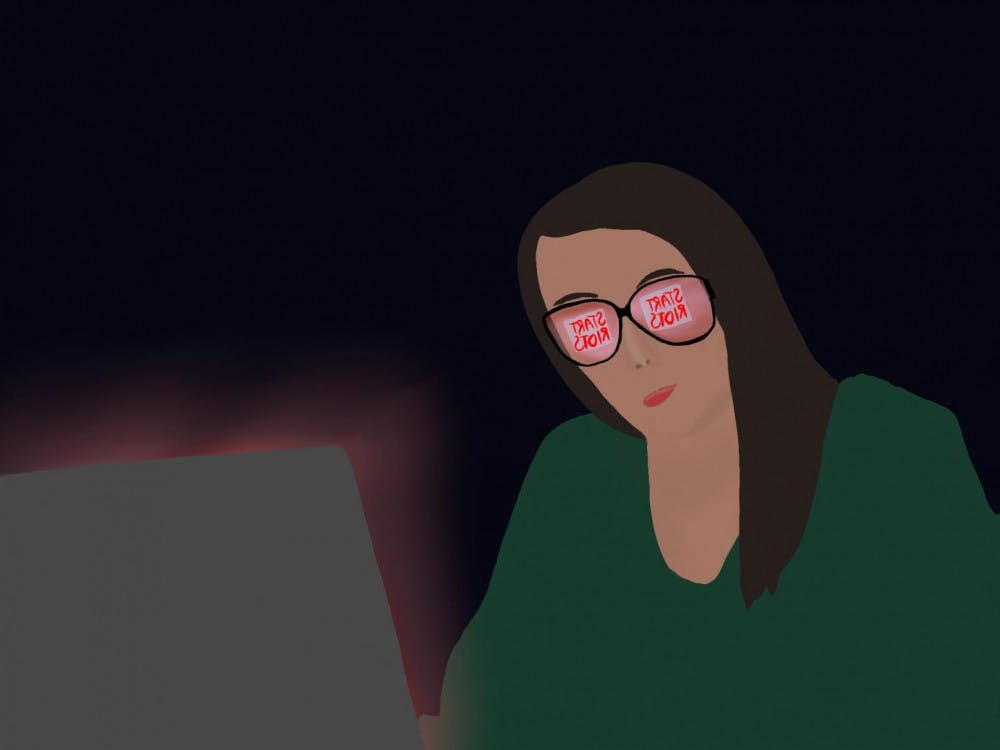On Jan. 6, I watched an attempted coup spurred by online conspiracy theories unfold at the nation’s Capitol; two weeks later, I began the J-Term class “Online Extremism: Theory, Research, and Practice.”
Instructed by Alex Newhouse ’17, the research lead at MIIS’ Center on Terrorism, Extremism, and Counterterrorism, “Online Extremism” offers lessons about the dangerous extremist groups that plague the online underworld and the increasing importance of exercising caution on the internet.
I was fewer than 10 miles away from the insurrection at home, and in the days that followed, I rode my bike through the dirt paths of Rock Creek Park and onto the National Mall, where I watched armed officers exchange uneasy glances from behind a newly erected fence. The newspapers told of white supremacist online forums and infamous conspiracy theories spread by QAnon. At the heart of the Capitol riot was the internet and the lie that it spread: that the 2020 election was stolen from Donald J. Trump. In “Online Extremism,” we’ve unraveled this thesis to understand the history of online extremist groups and the platforms that have allowed digital hate to transform into real-world violence.
On Jan. 27, the Department of Homeland Security released the first national terrorism bulletin about domestic terrorists, raising the question of why the consideration of domestic threats is such a new development. Since 9/11, the term “terrorism” has been mainly associated with Islamist extremists and Salafi-Jihadists, but there are other terroristic threats that have gone uninvestigated, and even unacknowledged, by our government in recent history. These hidden extremists are not really hidden at all. The internet has made it easy for them to spread messages of hate, misogyny, racism and xenophobia. Newhouse’s course teaches us where to look and what tools to use to prevent these online threats from intensifying and expanding beyond the internet.
In our hybrid learning environment, we use websites like Discord and YouTube to listen to lectures and engage in nuanced conversations. We discuss the dangers of online rabbit holes and notable extremist organizations — as well as how to identify them. We explore the terminology used by Neo-Nazis and the lax efforts by social media giants to restrict the spread of hate. We talk about what’s going right in the fight against terror and what needs to change (spoiler: a lot).
Sometimes, topics of discussion fall right into our laps. Another bomb defused; another plot unveiled. This is what makes the class so necessary: its relevance. Every day, the consequences of online extremism are evident, whether or not they’re on the front page of your favorite newspaper. What we’re learning is how to protect ourselves from the dangers of the internet, and how to protect others in the process.

Charlie Deichman-Caswell ’24 (he/him) is a Photo Editor and Contributing Writer.
Charlie is an Environmental Studies major with a concentration in Anthropology, and French minor. He enjoys athletic activities such as climbing and soccer, as well as other hobbies like photography and creative writing. In his spare time, he enjoys hiking and spending time outdoors with friends, reading, watching movies, and generally chilling out.




